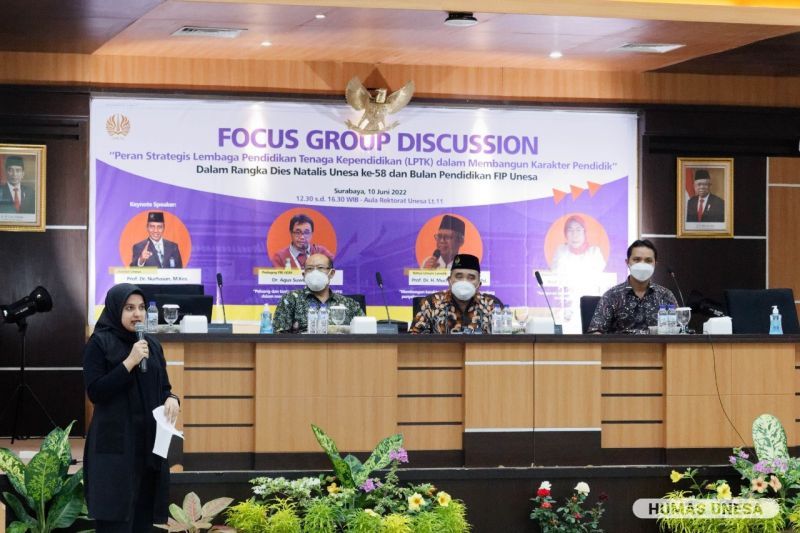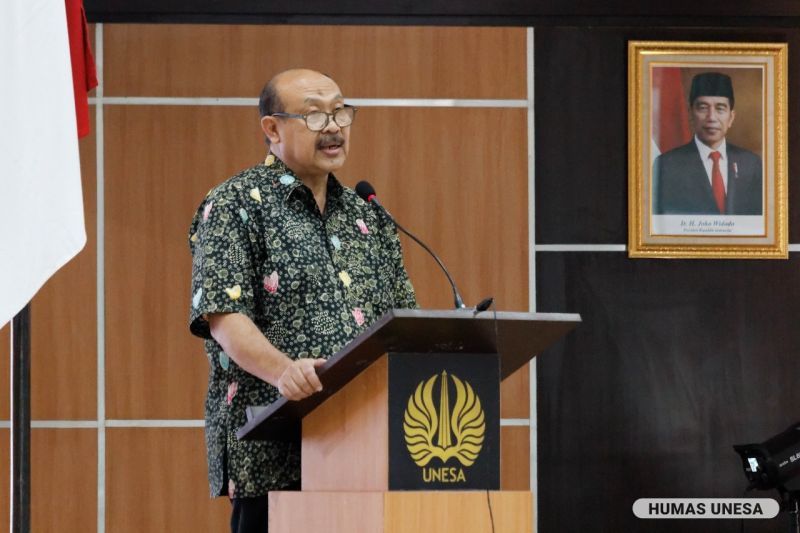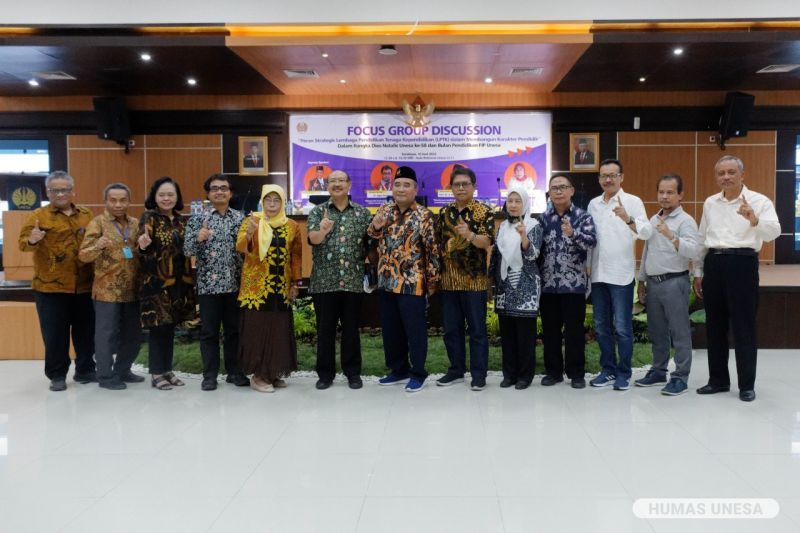
www.unesa.ac.id
Unesa.ac.id, SURABAYA-The role of Educational Personnel Education Institutions (LPTK) in building educational character became the central theme discussed by a number of experts in the Focus Group Discussion (FGD) held by the Faculty of Education (FIP), STATE UNIVERSITY SURABAYA (UNESA) on Friday, 10 June 2022 at the Auditorium Floor 11, Rectorate Building, Lidah Wetan Campus, Surabaya.
The experts who attended were Prof. Dr. Muchlas Samani, M.Pd., General Chairperson of Lamdik, Prof. Dr. Siti Masitoh, M.Pd., Chair of P3IP FIP UNESA., and Dr. Agus Suwignyo, M.A., FIB UGM Pedagogue. In his remarks, the Vice Chancellor for Academic Affairs, Prof. Dr. Bambang Yulianto, M.Pd., said that one of the goals of education is to shape the character of the generation that leads to the formation of the nation's character. In addition to knowledge and skills, character is an important domain in the implementation of education.
In accordance with the National Education System Law, No. 20 of 2003, national education, he continued, functions to develop capabilities and shape the character and civilization of a dignified nation in the context of educating the nation's life which aims to develop the potential of students to become human beings who believe and fear God Almighty. One, having noble character, healthy, knowledgeable, capable, creative, independent, and being a democratic and responsible citizen.

www.unesa.ac.id
“Character building is a shared concern and effort. UNESA continues to be committed to producing superior generations with Pancasila character. This is in accordance with the motto, growing with character," said the professor at the Faculty of Languages and Arts (FBS).
The essence of education is character development. Therefore, all elements and the educational environment must support the growth and development of the character of the nation's children. Including, educators and education staff who of course must also have character. Teachers are professional educators with the main task of educating, teaching, guiding, directing, training, assessing, and evaluating students in early childhood education through formal education, basic education, and secondary education.
“Educators are not only required to be able to teach or have pedagogical competence, but also have to have personal, social and professional competencies. In order for the educational process to run well and the objectives to be achieved, it requires teachers who have character, integrity, commitment, discipline, compassion, and are adaptive and innovative," he explained.
In the discussion session, Prof. Dr. Siti Masitoh, M.Pd., from the Center for the Study of Educational Science Development (P3IP) Faculty of Education, UNESA explained, in the learning process it is necessary to have the right learning model that can be applied well by educators and do not forget to provide guidance during the learning process. The character of educators needs to be trained since prospective educators are still studying in lectures, because later these prospective educators will educate the nation's next generation. "Character is not taught, but needs to be accustomed. Character is not just for learning, but learning how to have superior character," he said.
As an educational figure, Ki Hadjar Dewantara left many things to the next generation. According to him, learning will be effective if it arises from your own will, understanding and effort based on your own experience. "Teachers who have inner peace are able to control themselves who always want to learn throughout their lives to be able to encourage and provide knowledge and insight to students that science is a "window" to achieve success," said Prof. Masitoh.
Also present as a speaker, Prof. Dr. Muchlas Samani, M.Pd., explained that character is brought from birth and influenced by the environment. “Teachers are like farmers, students are like plants. There is no way the teacher can change the origin. The farmer's job is to deal with all aspects of his crop so that he knows how the water content needs, fertilizers and so on. In other words, the teacher cannot change the potential of students who are experts in playing badminton into singers. But we can cultivate our badminton skills to become good players in the national and international arenas,” he explained.
Dr. Agus Suwignyo, M.A., a senior lecturer at the Department of History, Universitas Gadjah Mada conveyed the dilemmas experienced by the LPTKs. Developed and developing countries such as Ireland, Sweden, UK, United States of America, and others are undergoing the transformation of higher education from what was originally “IKIP” to university. However, what makes Indonesia different is that the professors and lecturers there are getting stronger and more competent based on a strong commitment to establish a teaching university.

www.unesa.ac.id
Research carried out by ex-IKIP universities should be research to strengthen teaching and produce new teaching sciences about a field of pure science. “The key to improving education is a commitment to program quality, not to institutions; Re-vocationalization of programs at ex-IKIP universities; and benchmarking abroad,” he explained.
The activity, which was attended by UNESA leaders and the entire FIP academic community, was held in the context of UNESA's 58th Anniversary and part of a series of UNESA FIP education months. [UNESA PR]
Author: Fionna Ayu Shabrina
Editor: @zam Al'asyiah
Share It On:






